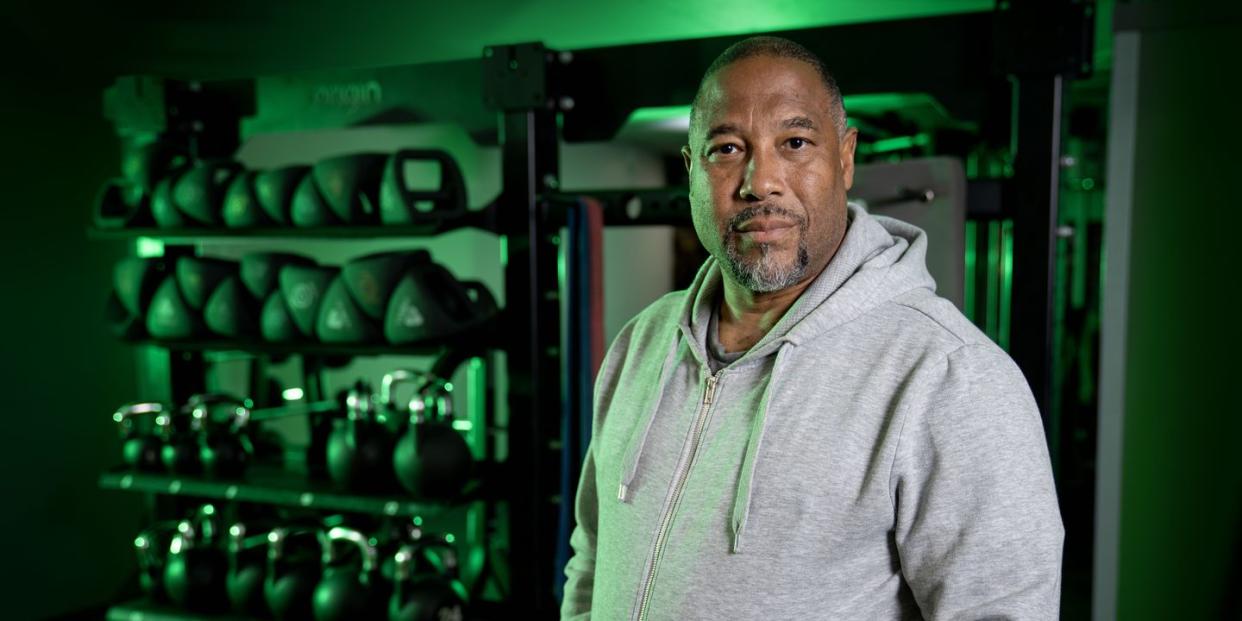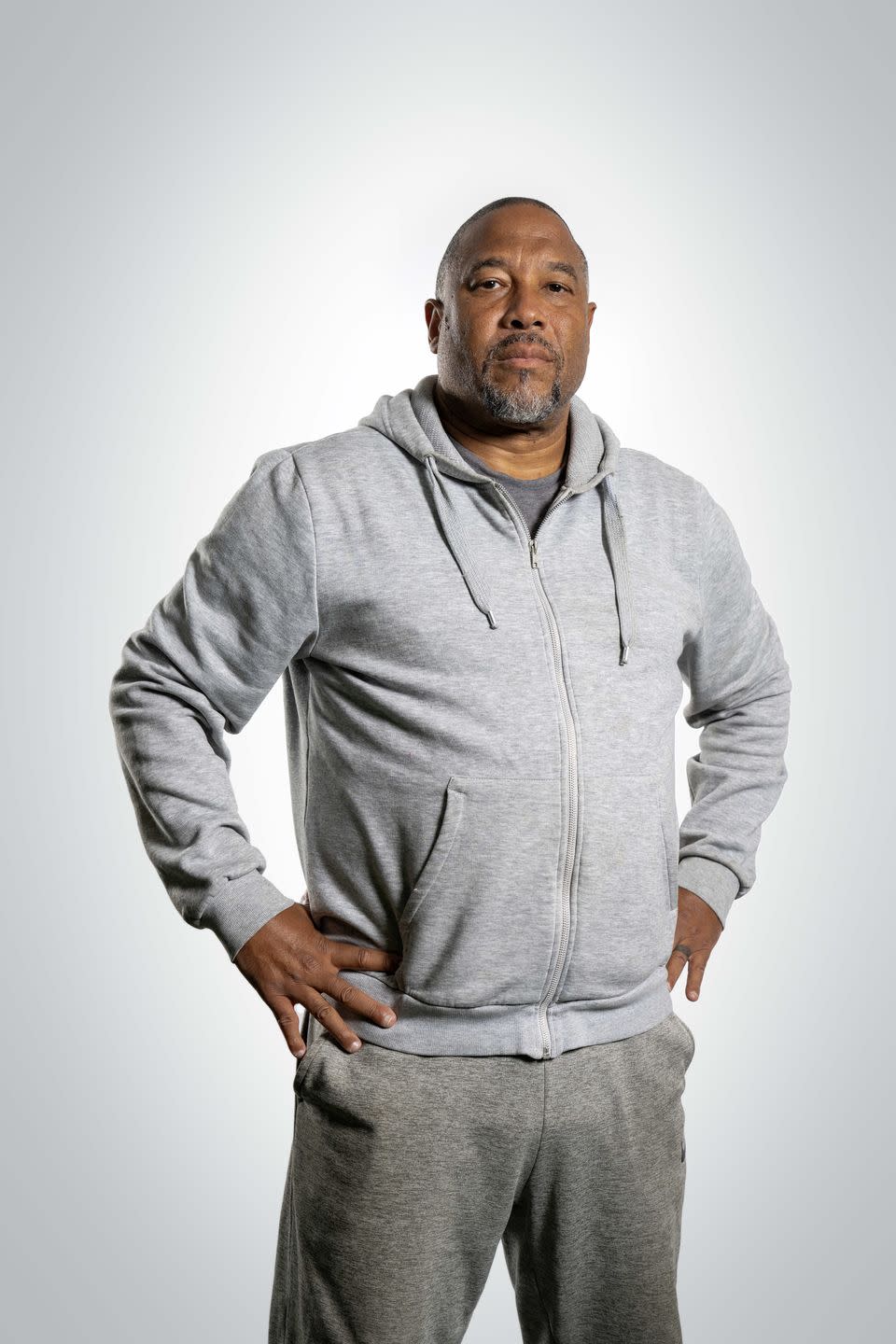John Barnes Is on a Mission to Reform Men’s Health

When John Barnes was a player ‘mental health’ was a thing for weak people. Sportsmen were alpha males. They ran, boxed, lifted weights. The ’80s might as well have been called the ‘toughen up’ decade.
Fortunately, Barnes, the former England and Liverpool winger, now 60, had been raised to build inner resilience thanks to his army officer father. It’s no small feat considering the astonishing racism he endured as a Black footballer.
‘The hardship I went through, I dealt with quite comfortably,’ he says. ‘But of course, there are lots of Black players who were lost in the game of football because they weren't able to deal with it, whereas now there is much more support given to them.’
We’re speaking over a video call to discuss the state of modern man – specifically in relation to physical and mental wellness. It comes off the back of a study by Nuffield Health, the official health and wellbeing partner of the England teams, which surveyed 8,000 men and women across the UK to try to gain a more complete understanding of our wellbeing habits. The findings, published as part of Nuffield Health’s Healthier Nation Index, found that while we’re more than ever, certain myths around exercise still need to be broken down to help us achieve optimum health. Nuffield’s #MyDailyMovement campaign aims to do just that.
Shockingly, the study found that 38 percent of the men surveyed dedicated no time to looking after their mental health in the past year – a statistics that’s impossible to consider without thinking about the wider implications for their health.
‘We know today that there’s an intrinsic link between the mind and the body, whereas back then, it was just about the body,’ Barnes continues. ‘And of course, we didn't look after our bodies very well either.’
Barnes describes players stopping off for fast food and beers, then sweating it all out the next day. Largely, he says even top athletes acted like this because there was a lack of information about health. It’s still an issue today. Nuffield Health’s survey found that just 37 percent of men understand that exercise can significantly reduce your risk of illness including heart disease and cancer.

‘I think many men go to the gym because they want to look good, whereas women have a better balance of the mind and body,’ Barnes suggests. For men, working out is a reinforcement of the idea that they must be big and strong. Barnes believes that men who don’t go to the gym get this sense of fulfilment and power from being a big shot at work. All of which feels as outdated as those 20 post-match pints.
Sharing his own health issues, Barnes reminds us that while you can craft a six pack, not all aspects of health are obvious to the naked eye. ‘Men are becoming more cognisant of the fact that we need to look after ourselves but for people of a certain age, it's difficult to get out to the conditioning that they've been through,’ he says.
Worryingly, just 38 percent of men reported that their fitness levels had improved over the last 12 months, and 26 percent said it’s gotten worse. The answer, Barnes believes, is to banish the idea that every man needs to turn himself into a bronzed Adonis, and to help men understand that 'It's about movement. You don't have to join a football team.’
‘A lot of men feel that this is a waste of time, because unless I run I lift heavy weights, what am I doing?’ Barnes says. ‘But it’s simple: it’s about movement, getting some exercise, eating properly and having the right holistic approach to fitness. If you continue to do it, then you feel better every day.’
You Might Also Like


